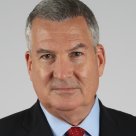It is not exactly a mystery when the 43rd general election will be held.

For four years now, we’ve all known — thanks to the fixed-date election law brought in by the Harper government — that Canadians will go to the polls on Oct. 21.
This means, one would think, all major parties would be working to arrange their affairs with a view towards being ready to begin the official campaign as early as this weekend. (Under the fixed-date election law, the earliest that Prime Minister Justin Trudeau could ask the Governor General to dissolve Parliament and send everyone out onto the hustings is Sept. 1. The latest he is allowed to wait is Sept. 15.)
And because a general election is really 338 individual races — one in every riding in the country — the most important thing any federal party needs as it prepares to campaign is a candidate in each of those 338 ridings.
The Conservatives and the People’s Party of Canada know this. Both parties are inches away from a full coast-to-coast-to-coast slate of candidates. And as of late Thursday afternoon, Elizabeth May’s Green Party was just ahead of the governing Liberals with nominated candidates in about three-quarters of the ridings.
But the NDP — despite the certainty of the date that is now upon them — have no candidates in more than half of the country’s ridings, yet more evidence of the sickly weakness of the party under leader Jagmeet Singh. The party has been trailing in fundraising, trailing in the polls and, now, trailing in candidate readiness. On the morning of Aug. 29, the NDP web site listed 148 candidates but according to party spokesperson Melanie Richer, the NDP had 174 candidates in place Thursday.
The NDP had not a single nominated candidate in any of the 10 ridings in New Brunswick, any of the four ridings in P.E.I. or in the northern ridings of Nunavut and the Northwest Territories.

Get daily National news
To Dennis Matthews, a veteran of Conservative election war rooms in 2006 and 2008, this failure to have candidates in place is a tremendous disadvantage for the NDP.
“A candidate is the leader of the local campaign,” Matthews said. “They often pick their campaign managers. They bring their own cadre of volunteers and supporters. A lot of the decisions that get taken on things like office space, getting your campaign signs printed, getting your website up, your social media going — all that kind of stuff — can’t really happen until you have a candidate.”
On its face, the lack of candidate preparedness for the New Democrats would be a concern, but even more worrying may be the relative organizational strength of the Green Party, which, according to Green spokesperson Rosie Emery, had nominated 274 candidates as of Thursday afternoon.
Among the factors hobbling the NDP in finding candidates is what some political scientists describe as the party’s “incumbency disadvantage.”
A near-record percentage of New Democrat MPs will retire once the writ is dropped next month. Just over 33 per cent of those New Democrats elected in 2015 will not run now, a figure exceeded only once in modern Canadian history in 1993 when 41 per cent of those elected as Brian Mulroney’s Progressive Conservatives declined to run for the Kim Campbell PCs.
Among the retiring NDP MPs is Murray Rankin, who represented the riding of Victoria. Without Rankin’s incumbency, that seat is a clear target for the Greens, who have a solid base on southern Vancouver Island. The party recently won a byelection in Nanaimo-Ladysmith, and party leader May represents Saanich-Gulf Islands, the riding adjacent to Victoria. The Greens are aiming to build on that regional strength on Vancouver Island by taking out NDP incumbents Randall Garrison in Esquimalt-Saanich-Sooke and Alistair MacGregor in Cowichan-Malahat-Langford.
David Akin is the chief political correspondent for Global News.
Editor’s Note: The NDP nominated candidate count was update in the headline and in the text to clarify the candidate count per the party’s Web site as of August 29 versus an e-mailed statement from a party spokesperson.








Comments